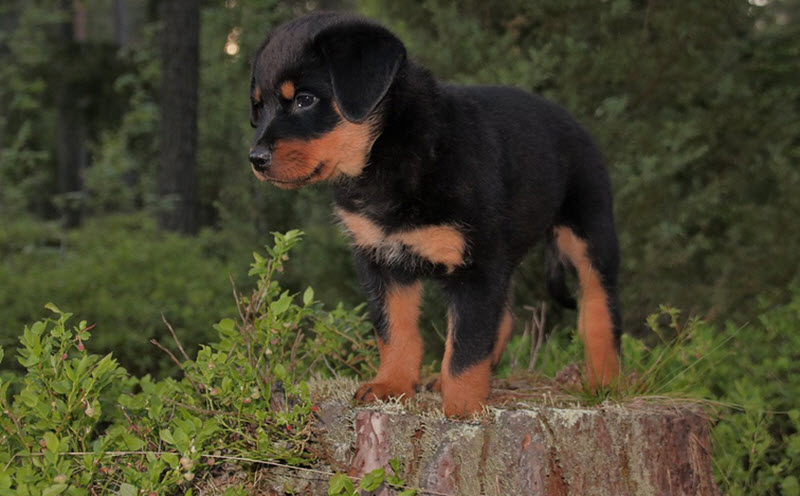


Choosing the right puppy for your family is an important task. You want to be sure the puppy will be a good match.
Take your time and consider your options. Never buy a pet on a whim or sudden impulse. Do your due diligence in advance of your purchase.
Here are a few things to consider:
Are your children old enough to enjoy a dog and help take care of him? Toddlers and dogs often don’t mix well. A young child will often try to grab or hug the dog too tightly and they won’t understand they’re hurting the animal. Some dogs are simply not good with children and will snap at them if nervous. If your children are young you may want to consider waiting a few more years before adding a dog to your household.
Do you already have dogs or other pets. If you do you should consider that when choosing a suitable dog breed. Different breeds to differently well with other pets. A good example of this is the fact that you should avoid keeping small pets such as rats and guinea pigs with small hunting dogs such as chihuahua and king Charles spaniel. The desire to hunt these animals is deeply embedded in the breeds. The same is true for Great Danes and pot belly pigs (and other pigs). This normally calm breed will often go crazy to hunt pigs due to their long history as hunting dogs breed for hunting wild bore. Another example of this is that you might want to avoid getting a bird dogs if you keep a cockatoo or any other type of bird. It is seldom a problem since parrots tend to stand their ground (not triggering hunting instincts) but it is still best to avoid the risk. Other less assertive birds like toucans and doves might be more at risk.
General speaking you want to shows a dog breed of a similar size to your current pet. If your current pet is small than a large dog can also be a good choice. Problems mostly arrive when your dog grows a little large (Twice the size) of your old pet. If you have any doubt i recommend connecting a breeder outside your area to ask them about their experience of keeping the dog with other breeds. It also a good idea to see what AKC have to say about keeping the breed with other pets.
Do you have a large enough home or apartment to accommodate a rowdy puppy?
Do you have a yard where the puppy can play? If not, are there parks nearby where you can take your dog for a walk?
 This will affect the size your dog will be when full grown.
This will affect the size your dog will be when full grown.
Some dogs will need to be groomed on a regular basis. Are you willing to pay the cost to have this done or learn to do it yourself? If not, consider a breed with less upkeep.
Certain breeds are predisposed to certain types of health problems.
Dogs with thick fur often do better in cooler climates. If you buy a Husky and you live in Florida or Texas; you’ll probably need to keep it inside and walk it early in the morning. They won’t enjoy the heat.
A few dog breeds, such as Poodles, are hypo-allergenic. This is important if someone in your family suffers badly from allergies.
Some breeds are known as high energy dogs. If you lead a sedentary lifestyle this is probably not the type of dog for you. You may want to consider getting an older dog instead of a puppy.
Also, different breed are known for specific personalities. However, even dogs within certain breeds will have their own unique personality.
Puppies can be costly pets. These costs include:
When choosing your dog try to visit the home they were born in. Take a look at their parents.
You don’t want an extremely shy puppy that doesn’t interact with you. But the most rambunctious puppy in the litter may be more than you bargained for so choose carefully.
The biggest choice you’ll make is whether to adopt your puppy from a breeder or adopt from a shelter. Both have pros and cons so research your decision carefully.
Make sure the puppy looks healthy with clear eyes, a dry nose and no discharge from his rectum. If possible, have the puppy checked by a vet before purchase. Nothing is more devastating to your children than bringing home a new puppy, having them get attached, and then finding out the dog is sick.